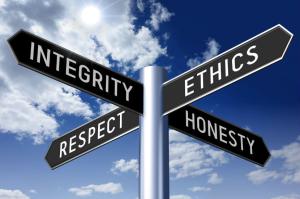https://www.iuniverse.com/en/bookstore/bookdetails/809142-the-virtue-of-virtues

When sex education classes were introduced into public school systems across the United States of America back in the 1990s, parents asked me to write a book to help parents and their grade five through eight children, so they could have a more value-based teaching to present to their young ones. I also had a sixth grader coming through the school at that time, and other of my children to follow. I agreed and authored The Virtue of Virtues, which I taught at Sacred Heart of Jesus Parish in Hopedale, Massachusetts, in the Diocese of Worcester.
Some of the sex education textbooks I’d seen in public schools asked the sixth grade children in their sex education class when was that the last time they had sex; and promoted products on the best condoms and gels to use for their own protection. While using the best condoms and the best gels might be beneficial to preventing them from getting certain diseases, the premise that all the sixth graders were having sex was inaccurate. Not only was it inaccurate, it was undermining what many parents had been, and to this day, are teaching about morality. Schools were usurping parental authority on what morals ought to be taught to their children.
Schools across the country had D.A.R.E. ~ Just Say No Program to help students combat the drug and alcohol epidemic sweeping through schools of all kinds of socio-economic status. But when it came to underage kids being sexually active, there were no protections put in place for those children who did not want to, or choose not to have sex. Teaching about condoms, gels and abortions as the means to prevent unwanted pregnancies was apparently the way to go.
What about the sexually abused student?
Would condoms, gels and abortions be the remedy for them if they got pregnant?
What about the 12-year-old girl or boy who did not want to have sex with another student, teacher, or other adult?
Would condoms, gels and abortions be the remedy for these students as well?
Of course not.

I attended the next school council meeting in order to present parent concerns over these issues. However, peer pressure does not only stop with children in school. It became apparent that sex education classes were here to stay. What the school council did decide to do was to go along with the newly created Massachusetts Education Reform Act of 1993. The Town of Hopedale voted me in as one of the 2 parents in the town. On that civic board, I was voted in as co-chairperson along with the elementary school principal.
At the first board meeting, I suggested that part of the education reform ought to include a course on ethics to go along with the sex education program. In that way, children without a voice would be able to use the program (which was yet to be written) to better be able to stand up for themselves and not be pushed into going along with the crowd if they did not want to go along with them. The free will of the children was being usurped.
“We need to have a course on ethics to go along with the sex education program,” I said to the board.
“But whose ethics would we teach?” was the quick comeback from the school principal.
I realized at that moment that this public school would not allow certain ethics or particular kinds of morality to be taught in the public schools. They did teach not to steal other children’s lunch money, not to fight on the playground, and not to disrespect the teacher, but somehow teaching about the morality of protecting their own person as being private to each student was beyond the comprehension.
Morality as a subject in the public school curriculum was not addressed. I told the board that this material is the role of the parents to address with their children, not the public school system. The principal told me that since many homes were now single parent homes, and that many parents were not teaching this subject to their children, the role of sex education would now fall to the schools. I withdrew my children from this amoral sex education curriculum and taught them myself.
That’s when I knew had to write The Virtue of Virtues. It is a grade five – eight, virtue-based morality curriculum designed to be incorporated into existing CCD parish programs. I taught it to sixth-graders. The seven lessons may be taught once each month during the CCD year or in a seven-week block from October to December at the start of the CCD year. Both methods have proven to be successful.
Parents can also use this organized approach to teach virtues to their children, since The Virtue of Virtues may be taught one hour each night for one week, once a week for seven weeks, or once a month for seven months. Parents have the opportunity to teach their children individually or in a comfortable setting with other parents and children.
My job since 1977 to that point was writing for a newspaper, The Milford Daily News (under the name Linda Kearsley), as a reporter and feature story writer for the neighboring Town of Mendon. I decided to answer the six questions every reporter needs to ask for a complete story: What?, Why?, How?, When?, Who? and Where?.
The What? section of each chapter refers to a current day fiction story, which deals with the lesson theme, and is followed by the Why? section that asks questions. How? is a written activity. When? opens the scriptures for the students, while Who? illustrates the message is meant for them. Each lesson concludes with Where? calling students to act out their faith here and now.
This book is written with much love for our youth. Each of the seven lessons leads children to seek out God, who loves them, and to live out the virtues, as a way of returning their love for God.
The seven chapters are:
1. Theological Virtues
A. Faith
B. Hope
C. Love
2. Cardinal Virtues
A. Prudence
B. Justice
C. Fortitude
D. Temperance
3. Fruits Of The Holy Spirit
A. Charity (Love)
B. Joy
C. Peace
D. Patience
E. Kindness
F. Goodness
G. Endurance
H. Mildness
I. Faith
J. Modesty
K. Restraint
L. Chastity
4. Seven Capital Sins
A. Pride
B. Covetousness (Greed)
C. Lust
D. Anger
E. Gluttony
F. Envy
G. Sloth
5. The Opposite Virtues
A. Humility
B. Generosity
C. Chastity
D. Meekness
E. Temperance
F. Brotherly Love
G. Diligence
6. Friendship
A. Mutual Respect
B. Sincerity
C. Loyalty
D. Faithfulness
E. Honesty
F. Purity
G. Self-esteem
7. Decision Making
A. Free Will
B. Coercion
C. Responsibility
D. Exploitation
E. Peer Pressure
F. Character
Teacher’s Objectives for each class are explained in the Appendix. Parents will also benefit from the Appendix at the conclusion of the book, which includes references to today’s Catechism of the Catholic Church dealing with virtues.
If there ever was a time when moral courage was on trial, it is today. We can do much to foster virtues in our youth, and in the process, strengthen these same virtues within ourselves. Virtues are the first stepping stones leading to mature character development.
I used to go to spiritual direction at that time from the late Bishop George Rueger, at the time I wrote this book. He asked me, “Which of the virtues do you think is the most important?”
I thought for a moment and answered, “I would have to say wisdom.”
“But you know wisdom is not a virtue, right?”
“I know. But without wisdom, I would not know which virtue to choose,” I answered.
“That is very wise,” he said.
In our daily lives, how could anyone pick just one virtue? Sometimes even as adults we need the virtue of fortitude to do the right thing in the face of unpopular vices, while another time the virtue of love in the face of hate is the only remedy. We need to pray about this, for ourselves, as well as for our children and grandchildren. It is not too late. It is never too late to teach about virtues and ethics.
Let us not shy away from teaching virtues to our children. Not one of us is perfect. We begin, or begin again, right where we are. Let us bloom where we are planted, in the garden of our homes, families, neighborhoods and parishes. This is a positive step we can take to instill wholesome goodness in a world in want and need of virtues.
https://www.iuniverse.com/en/bookstore/bookdetails/809142-the-virtue-of-virtues
God Bless Everyone Everywhere









